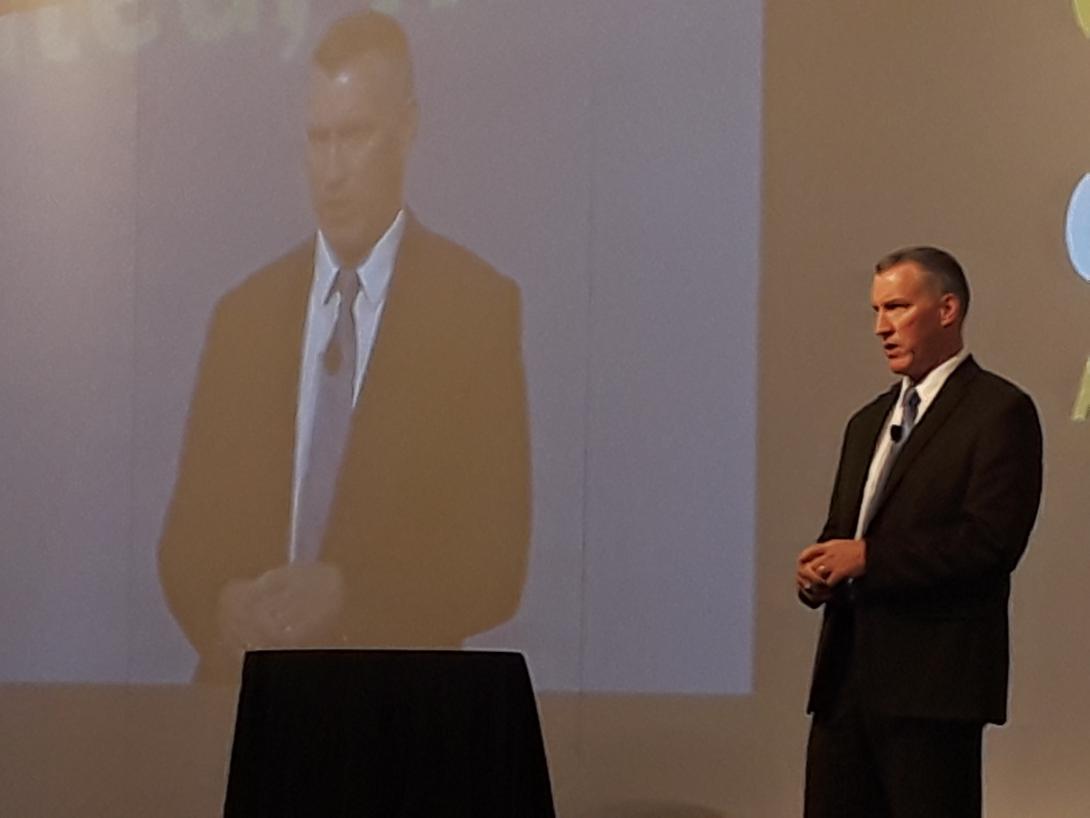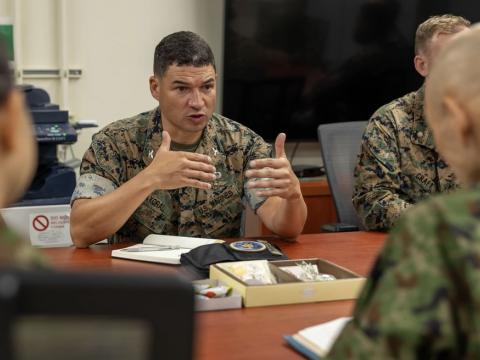DOD Poised to Help DHS Secure Elections
Officials with the U.S. Defense Department and Department of Homeland Security recently signed a memorandum of understanding outlining a partnership that will allow the Defense Department to take a greater role in sharing intelligence and proactively defending the nation’s critical infrastructure, including next week’s mid-term election.
The Defense Department’s unique role in assessing foreign threats means that it often has information that could benefit the other departments and agencies, the defense industrial base and others with a role in defending the nation’s critical infrastructure.
If an organization with responsibility for protecting critical infrastructure needs greater cyber protection than the other agencies can provide, the Defense Department may step in. “We recognize the need to partner across the U.S. government, principally with the Department of Homeland Security, the FBI and the other departments that have a responsibility for critical infrastructure,” Maj. Gen. Burke “Ed” Wilson, USAF (Ret.), deputy assistant secretary of defense for cyber policy, reported October 30. “We just issued a new memo of understanding with our roles and responsibilities alongside of DHS.” He made the comments while giving the final keynote address at a one-day cyber conference in Washington, D.C., hosted by Symantec.
The new arrangement will allow the Defense Department to support the DHS on high-priority efforts related to critical infrastructure protection, including next week’s election. “There’s been some really solid work with understanding the roles and responsibilities and how we would respond, to the point where we recently signed out some paperwork associated with election security,” Gen. Wilson added. “If there was an incident coming into the mid-term elections, DOD would be prepared to provide support in an instant-response fashion and bring some additional expertise.”
That additional expertise centers on the Defense Department’s international focus and its role in analyzing foreign threats. “We in the DOD have a unique role in understanding that threat and then making sure we have the structures in place to provide and share information or intelligence about those threats so that we can build a more resilient architecture, and then when called upon to be able to bring to bear cyber effects operations,” Gen. Wilson explained.
The DOD also has greater resources for a cyber response, if needed. “If we need to push back against a particular threat, the people of the organization [that is] critical to the United States are going to turn to the Department of Defense,” Gen. Wilson said. “By having a partnership, we understand the threats, and we can then undertake the actions required.”
The deputy assistant secretary stressed that the two departments have searched for “pragmatic” ways for the Defense Department to support the DHS on high-priority efforts. He also reported that information and intelligence will be shared not only with DHS but through DHS to other key players in infrastructure protection, including industry, local governments and election officials.
As a first step, the two departments already have begun some pilot efforts. “We’ve begun information-sharing pathfinder pilots to look at how we can be more practical participants in sharing information that we would have, intelligence we may see based on our activities … and sharing that as appropriate through DHS channels and through the other department and agency channels,” he said.
The DOD is able to take a larger role in part because the cyber mission force has matured and reached full operational capability, which provides insights across a broad array of missions, the Gen. Wilson indicated. “Just like in other domains, [we] focus on being able to preempt threats that may be building against the nation, whether that’s exfiltration of information, critical infrastructure tasks or malicious cyber activity in the form of influence operations,” Gen. Wilson stated.







Comments